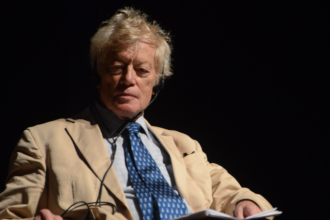Sir Roger Scruton
By and large the educated elites in the Western world today are without religious belief and often animated by what I call a “culture of repudiation,” keen to banish old ideas of the sacred from public life and to remake the institutions and structures of civil society so as to reflect their own liberated lifestyle. This attitude tends to go hand in hand with a rejection of traditional morality and the customs that sustain ordinary people in their daily lives.
In America and across Europe, the business of government has been detached from religious faith. This detachment is made explicit in the First Amendment to the US Constitution, which forbids the federal government from making any establishment of religion—in other words, from imposing on the people the beliefs and rituals of any particular faith. But it is also the norm throughout the Western world and is often considered to be part of the Christian legacy. The Christian church was compelled from the beginning to recognize that it occupied a negotiated space, in the larger realm of secular government. St. Paul urged his followers to respect “the powers that be,” and Christ himself had argued that we should render unto Caesar what is Caesar’s and unto God what is God’s—in other words, that we should obey the secular law and not claim exemption from it on religious grounds. Without those cautious pronouncements, the Christian faith would have entered into immediate conflict with the Roman authorities, who tolerated all gods, but only if those gods were as obedient to Rome as the people who worshipped them. As soon as Rome felt threatened by the Christian God, Christians began to be persecuted. And of course later, when Christianity had triumphed and taken on the form of spiritual government, nominally distinct from the secular rule of law but always breathing down its neck, » Read More
https://theimaginativeconservative.org/2025/01/sacred-truths-profane-world-roger-scruton.html






